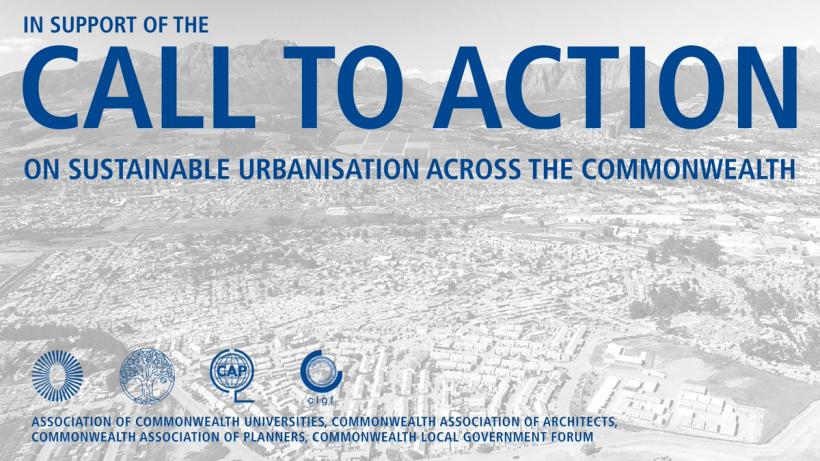
Why sustainable urbanisation is important in the fight against climate change
With COP26 underway in Glasgow, a high level event convened by The Prince’s Foundation and key Commonwealth partners held on 27 October discussed the ‘triple threat’ of rapid urbanisation, natural resource depletion and climate change, and the need for collaboration if global climate action targets are to be met within the limited time available.
Joining HRH The Prince of Wales were key voices including Astrid R. N. Haas, former Policy Director at the International Growth Centre (IGC) and member of the Cities that Work council, Rt Hon Patricia Scotland, Commonwealth Secretary General, the Executive Director of UN-Habitat Maimunah Sharif, Dr Jeanne d’Arc Mujawamariya the Rwandan Environment Minister and HE Saida Muna Tasneem, the Bangladeshi High Commissioner among others, for a discussion moderated by Bristol City Mayor Marvin Rees.
Cities already consume more than two thirds of the world’s energy and account for more than 70% of all carbon emissions. From 2015 to 2050, the world’s urban population is expected to almost double, and based on current trends of urban sprawl and unplanned settlements, this could mean a tripling of the urban land mass, crushing often fragile eco-systems in the process.
Almost 50% of that global urban growth is projected to be in the Commonwealth. A staggering 95% of that growth is expected to be in Asia and Africa, two continents which are particularly vulnerable to climate change impacts and currently with limited capacity to respond to these intense challenges.
The discussion highlighted the Call to Action on Sustainable Urbanisation across the Commonwealth, a joint initiative of the Commonwealth Local Government Forum, the Association of Commonwealth Universities, the Commonwealth Association of Architects and the Commonwealth Association of Planners. The Call to Action was circulated to Commonwealth Heads of Government in February 2021, highlighting the issues facing the Commonwealth and urging the need for collective inter-disciplinary action to place climate conscious urban planning and management at the heart of the response to climate change.
Astrid Haas said: “As an economist, I can assure you that this Call to Action reflects one of the most important economic forces of our time. Across history and across the globe people have been flocking to cities in search of opportunities, of jobs, and most importantly, to improve the lives of future generations. Following people, firms are also relocating to cities in search of labour, markets, infrastructure, and ideas for innovation. These economic forces that bring people and firms together in dense environments, if managed well through suitable economic and spatial policies, can be a major driver for economic growth.”
HRH said: “Sustainable development is clearly critical to responding to the climate emergency. The scale of our response needs to be equal to the scale of the challenge we are facing. I sincerely hope the very essence of adding social, environmental and commercial value can help to inspire and guide our actions and responses in the weeks and months ahead.”
Kalim Siddiqui, President of the Commonwealth Association of Architects, said: “There is an urgent need for us to tackle the critical lack of capacity among built environment professionals in many of the Commonwealth countries that are urbanising most rapidly and are among the most vulnerable to climate change impacts, especially in the public sector and in secondary cities. The impact of unplanned and poorly planned settlements can already be seen in terms of widespread inequality, informality, and vulnerability. The Commonwealth Association of Architects is committed to working with partners to develop the Call to Action into a programme of practical action that will have real impact on the ground.”
For more information on the Call to Action on Sustainable Urbanisation across the Commonwealth, click here.

